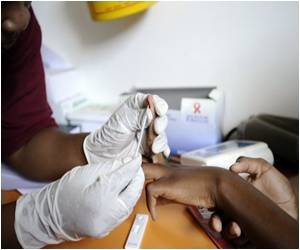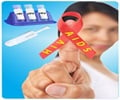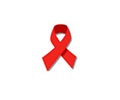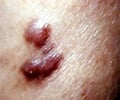President Jacob Zuma on Thursday unveiled a plan to halve the number of HIV infections over the next five years, cementing South Africa's turnaround from years of deadly denialism.

Despite his own gaffes -- he once said he had showered to prevent HIV infection -- Zuma has dramatically expanded South Africa's AIDS treatment programme, which is the largest in the world serving 1.3 million people.
"We are steadily overcoming fear and confusion. We have overcome divisions. We have stopped making HIV and AIDS a battlefield on which to fight one another," Zuma said in a speech in the southern city of Port Elizabeth.
The new plan calls for stepped-up prevention efforts to halve new infections of HIV and tuberculosis by 2016 and to put 80 percent of eligible patients on anti-retroviral drugs to fight AIDS.
South Africa has 5.6 million people with HIV, in a population of 50 million, and the expanded treatment has already made gains in combating the epidemic.
The number of mothers who transmit HIV to their babies during childbirth has plunged, while the rate of new infections dropped by 22 percent during the last decade, with mortality dropping at a similar pace.
Advertisement
The number of nurses accredited to provide AIDS treatment also jumped from 290 to 10,542.
Advertisement
Zuma made no mention of what the new plan will cost, but local media put the price tag at 131 billion rands ($16 billion, 12 billion euros).
AIDS activists, who were shunned by the Mbeki administration, welcomed the new plan, which was crafted after widespread consultations among civil society and health authorities.
"South Africa started the last plan with Manto Tshabalala-Msimang as the Minister of Health and Thabo Mbeki as president. Although the plan was adopted by the government, it was resisted by the minister," said the Treatment Action Campaign, which spearheaded efforts to force the government to provide to anti-retrovirals (ARVs).
"For several years the roll of ARVs was kept as slow as possible. Preventable infections and deaths continued," it said.
"Five years later, all that has changed. We have almost all the tools and policies to fight HIV and TB. What we need now is accountability for implementation."
Source-AFP















